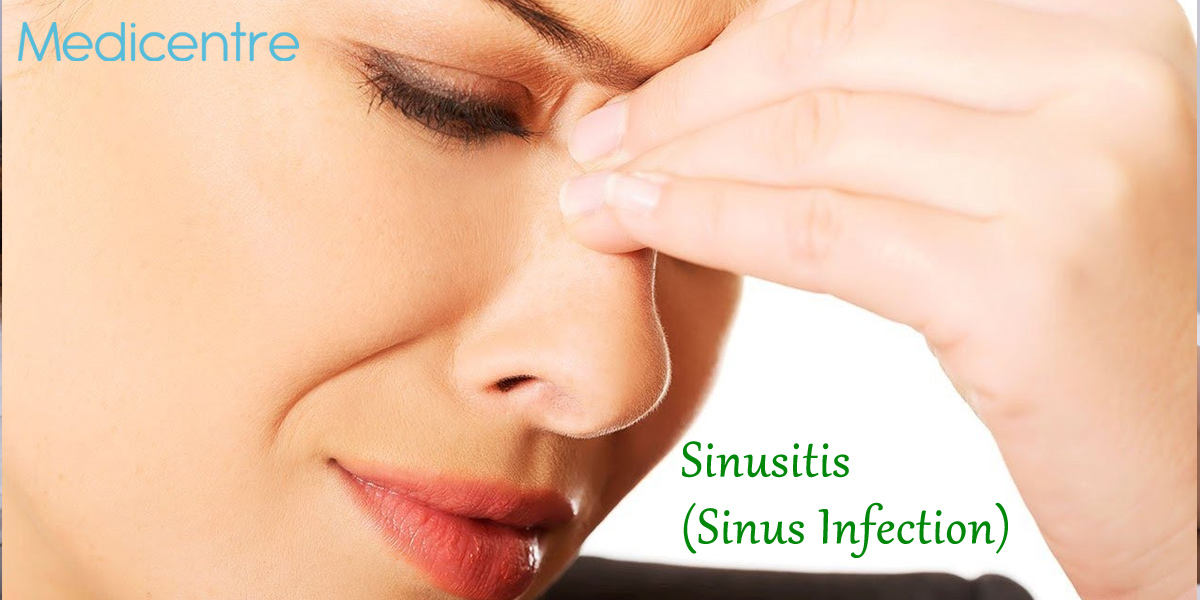Sinusitis (Sinus Infection)
In a sinus infection, your nasal passages become infected. And it can be difficult to get rid of it. Causes of infection may include viruses, bacteria, or even allergies.
Colds don’t typically cause sinus infections, but they do offer a breeding ground for the infection in a way that you frequently touch your nose when you’re sick, and every time you bring more bacteria to the sinuses, and since your sinuses can’t drain, the bacteria stay there and grow.

Symptoms:
- Swelling, pain, and tenderness around your cheeks and eyes.
- A stuffy nose
- Reduced sense of smell
- Thick green or yellow mucus from your nose
- A sinus headache
- A Fever
- Toothache
- Bad breath
- Fatigue
Symptoms of sinusitis in young children may include irritability, difficulty feeding and breathing through the mouth.
Treatment
Generally, the acute infections go away on their own or after a simple course of antibiotics, Sinus irrigation is also recommended to ease the symptoms until the antibiotics work. Decongestants and over the counter mucus thinners may also help ease your discomfort.
If the sinus infection is not cured after the course of antibiotics, consult an ENT specialist.
Rarely, an acute infection can become chronic if it’s not treated effectively. In chronic infections, antibiotics and other treatments don’t work; you may require sinus surgery. In the procedure, your ENT doctor will broaden the small or inflamed and swollen openings of your sinuses, letting them drain, and allowing you to breathe more easily.